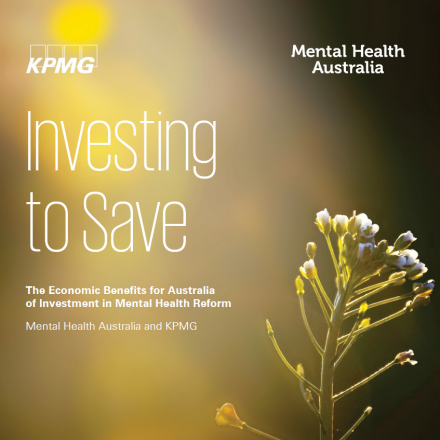CEO Update - A must read... The UN Human Rights Council Special Report into highest attainable standard of physical and mental health
A must read… The UN Human Rights Council Special Report into highest attainable standard of physical and mental health
Good reports should carry weight and help drive policy, reform and eventually outcomes… And the recent release of the Report of the United Nations Special Rapporteur on the right of everyone to the enjoyment of the highest attainable standard of physical and mental health certainly has the opportunity to do just that.
This UN Special Report lays out some very clear challenges to member states (including Australia), so I’ll let it speak for itself rather than interpret too much.
It begins by recognising that:
“Despite clear evidence that there can be no health without mental health, nowhere in the world does mental health enjoy parity with physical health in national policies and budgets or in medical education and practice.”
Among its major themes, the Special Report suggests:
• Strong move away from a predominantly biomedical, psychiatry driven model of mental health
• Strong support for psychosocial support in primary care and community settings
• Strong support for consumer participation in all aspects of planning, implementation and evaluation
• Strong approach to reducing coercion and involuntary treatments
• Strong recommendations regarding prevention and health promotion
It lays out a holistic agenda for what it calls the “right to health” which includes mental health, and steps well away from dominant biomedical approaches:
“Approaches to mental health that ignore the social, economic and cultural environment are not just failing people with disabilities, they are failing to promote the mental health of many others at different stages of their lives.”
This reinforces one of its central themes that there can be no health without mental health. The Report also reinforces the role of consumers and carers in shaping policy and implementation:
“Persons with lived experience, their families and civil society should be engaged in the development and implementation of monitoring and accountability arrangements.”
There is recognition that some of our previous approaches to mental health, while well intentioned, have not had the expected results, observing that:
“In some countries, the abandonment of asylums has created an insidious pipeline to homelessness, hospital and prison.”
The Special Report recommends our future approach should not be built around pilots and trials at the edges, but should place mental health at the centre of our approach to health:
The scaling up of care must not involve the scaling-up of inappropriate care. For care to comply with the right to health, it must embrace a broad package of integrated and coordinated services for promotion, prevention, treatment, rehabilitation, care and recovery and the rhetoric of “scaling up” must be replaced with mental health actions to “scale across.”
To my mind this UN Special Report reinforces that many of our current policy directions and intentions are good, but we have a long way to go before our implementation matches those good intentions.
There’s a lot in this 20 page document for us all to reflect on, but it’s well worth the read and reminds us that with the right reform, service and support:
“People can and do recover from even the most severe mental health conditions and go on to live full and rich lives.”
Report of the United Nations Special Rapporteur on the right of everyone to the enjoyment of the highest attainable standard of physical and mental health




